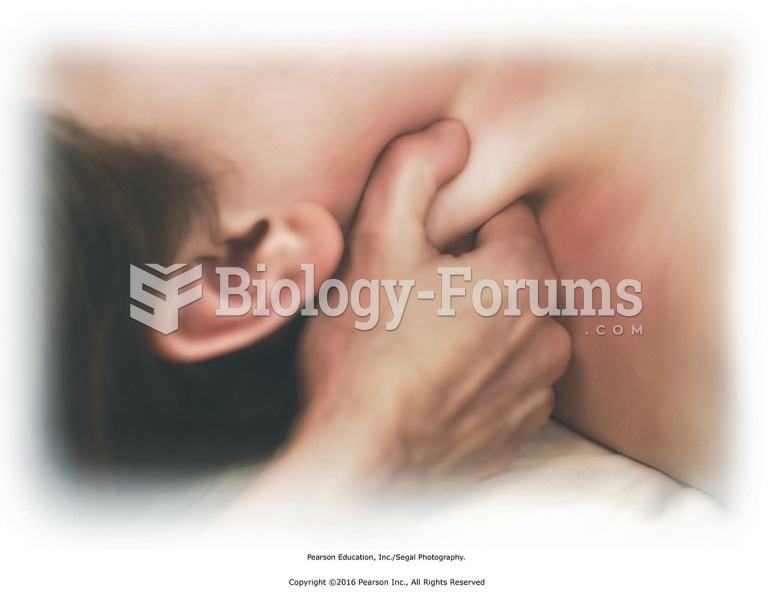|
|
|
According to the National Institute of Environmental Health Sciences, lung disease is the third leading killer in the United States, responsible for one in seven deaths. It is the leading cause of death among infants under the age of one year.
Not getting enough sleep can greatly weaken the immune system. Lack of sleep makes you more likely to catch a cold, or more difficult to fight off an infection.
When blood is exposed to air, it clots. Heparin allows the blood to come in direct contact with air without clotting.
More than 30% of American adults, and about 12% of children utilize health care approaches that were developed outside of conventional medicine.
Between 1999 and 2012, American adults with high total cholesterol decreased from 18.3% to 12.9%






